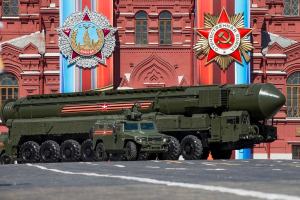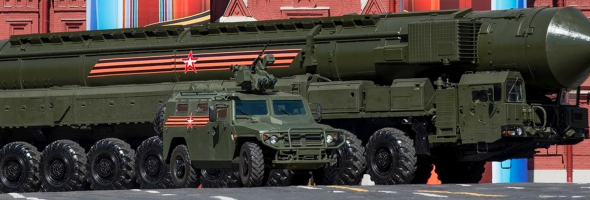
But [Enrico] Fermi and [Isidor Isaac] Rabi also condemned their friend Edward Teller’s Super [hydrogen bomb design] in the strongest language that appears anywhere in the nine pages of the GAC [General Advisory Committee] report.
“Necessarily such a weapon goes far beyond any military objective and enters the range of the very great natural catastrophes. By its very nature it cannot be confined to a military objective but becomes a weapon which in practical effect is almost one of genocide.
“It is clear that the use of such a weapon cannot be justified on any ethical ground which gives a human being a certain individuality and dignity even if he happens to be a resident of an enemy country. It is evident to us that this would be the view of peoples in other countries. Its use would put the United States in a bad moral position relative to the peoples of the world.
“Any postwar situation resulting from such a weapon would leave unresolvable enmities for generations. A desirable peace cannot come from such an inhuman application of force. The postwar problems would dwarf the problems which confront us at present…
“The fact that no limits exist to the destructiveness of this weapon makes its very existence and the knowledge of its construction a danger to humanity as a whole. It is necessarily an evil thing considered in any light.”
One way or another, most of the men on the General Advisory Committee had worked for international control of atomic energy. On the evidence of their October report, they had not left that intention so completely that they now viewed the Soviet Union as an obdurate, remorseless enemy. But those who urged racing to build the Super- Teller, Strauss, McMahon, Borden- did view the Soviet Union that bleakly. To Lilienthal, the men at Berkeley might appear to be “a group of scientists who can only be described as drooling with the prospect of ‘bloodthirsty.'” In fact, their enthusiasm masked a profound fear. They were afraid of an enemy which was evidently ruthless, which had hidden itself and its intentions behind minefields and barbed wire, which fielded large and powerful armies and which had just successfully tested an atomic bomb [in 1949]. So were McMahon and Borden afraid; so were the Joint Chiefs, men whose responsibility it was to protect the nation. When the GAC argued that building the Super might unleash unlimited destruction, then, it unwittingly enlarged the scope of its opponents’ fears and encouraged them to pursue the project with even greater urgency, because they immediately translated the weapon’s destructive potential into a threat and imagined the consequences if the enemy should acquire it first. An arms race is a hall of mirrors.*
* Teller eventually realized that there is a limit to the destructiveness of even thermonuclear explosions. At somewhere around a hundred megatons, he estimates, “it would simply lift a chunk of atmosphere-ten miles in diameter, something of that kind- lift it into space. Then you make it a thousand times bigger still. You know what would happen? You lift the same chunk into space with thirty times the velocity.”

